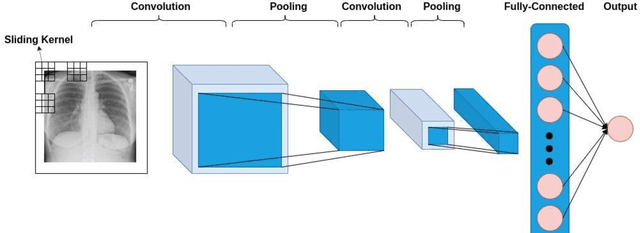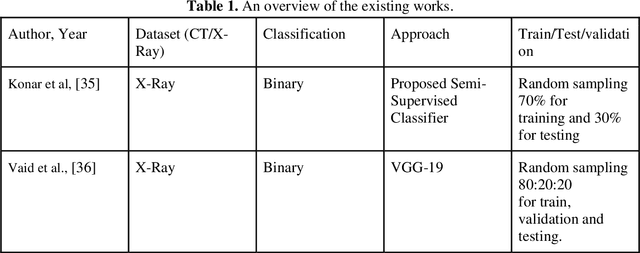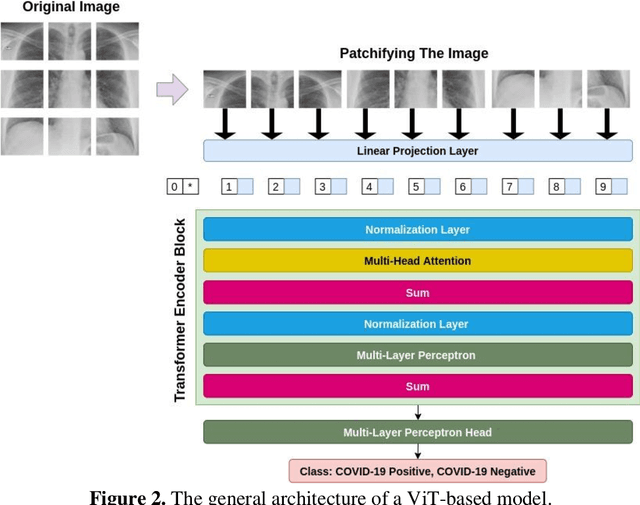Reza Lashgari
Reduced Deep Convolutional Activation Features (R-DeCAF) in Histopathology Images to Improve the Classification Performance for Breast Cancer Diagnosis
Jan 05, 2023Abstract:Breast cancer is the second most common cancer among women worldwide. Diagnosis of breast cancer by the pathologists is a time-consuming procedure and subjective. Computer aided diagnosis frameworks are utilized to relieve pathologist workload by classifying the data automatically, in which deep convolutional neural networks (CNNs) are effective solutions. The features extracted from activation layer of pre-trained CNNs are called deep convolutional activation features (DeCAF). In this paper, we have analyzed that all DeCAF features are not necessarily led to a higher accuracy in the classification task and dimension reduction plays an important role. Therefore, different dimension reduction methods are applied to achieve an effective combination of features by capturing the essence of DeCAF features. To this purpose, we have proposed reduced deep convolutional activation features (R-DeCAF). In this framework, pre-trained CNNs such as AlexNet, VGG-16 and VGG-19 are utilized in transfer learning mode as feature extractors. DeCAF features are extracted from the first fully connected layer of the mentioned CNNs and support vector machine has been used for binary classification. Among linear and nonlinear dimensionality reduction algorithms, linear approaches such as principal component analysis (PCA) represent a better combination among deep features and lead to a higher accuracy in the classification task using small number of features considering specific amount of cumulative explained variance (CEV) of features. The proposed method is validated using experimental BreakHis dataset. Comprehensive results show improvement in the classification accuracy up to 4.3% with less computational time. Best achieved accuracy is 91.13% for 400x data with feature vector size (FVS) of 23 and CEV equals to 0.15 using pre-trained AlexNet as feature extractor and PCA as feature reduction algorithm.
BERT-Deep CNN: State-of-the-Art for Sentiment Analysis of COVID-19 Tweets
Nov 04, 2022Abstract:The free flow of information has been accelerated by the rapid development of social media technology. There has been a significant social and psychological impact on the population due to the outbreak of Coronavirus disease (COVID-19). The COVID-19 pandemic is one of the current events being discussed on social media platforms. In order to safeguard societies from this pandemic, studying people's emotions on social media is crucial. As a result of their particular characteristics, sentiment analysis of texts like tweets remains challenging. Sentiment analysis is a powerful text analysis tool. It automatically detects and analyzes opinions and emotions from unstructured data. Texts from a wide range of sources are examined by a sentiment analysis tool, which extracts meaning from them, including emails, surveys, reviews, social media posts, and web articles. To evaluate sentiments, natural language processing (NLP) and machine learning techniques are used, which assign weights to entities, topics, themes, and categories in sentences or phrases. Machine learning tools learn how to detect sentiment without human intervention by examining examples of emotions in text. In a pandemic situation, analyzing social media texts to uncover sentimental trends can be very helpful in gaining a better understanding of society's needs and predicting future trends. We intend to study society's perception of the COVID-19 pandemic through social media using state-of-the-art BERT and Deep CNN models. The superiority of BERT models over other deep models in sentiment analysis is evident and can be concluded from the comparison of the various research studies mentioned in this article.
CCTCOVID: COVID-19 Detection from Chest X-Ray Images Using Compact Convolutional Transformers
Sep 27, 2022



Abstract:COVID-19 is a novel virus that attacks the upper respiratory tract and the lungs. Its person-to-person transmissibility is considerably rapid and this has caused serious problems in approximately every facet of individuals lives. While some infected individuals may remain completely asymptomatic, others have been frequently witnessed to have mild to severe symptoms. In addition to this, thousands of death cases around the globe indicated that detecting COVID-19 is an urgent demand in the communities. Practically, this is prominently done with the help of screening medical images such as Computed Tomography (CT) and X-ray images. However, the cumbersome clinical procedures and a large number of daily cases have imposed great challenges on medical practitioners. Deep Learning-based approaches have demonstrated a profound potential in a wide range of medical tasks. As a result, we introduce a transformer-based method for automatically detecting COVID-19 from X-ray images using Compact Convolutional Transformers (CCT). Our extensive experiments prove the efficacy of the proposed method with an accuracy of 98% which outperforms the previous works.
 Add to Chrome
Add to Chrome Add to Firefox
Add to Firefox Add to Edge
Add to Edge